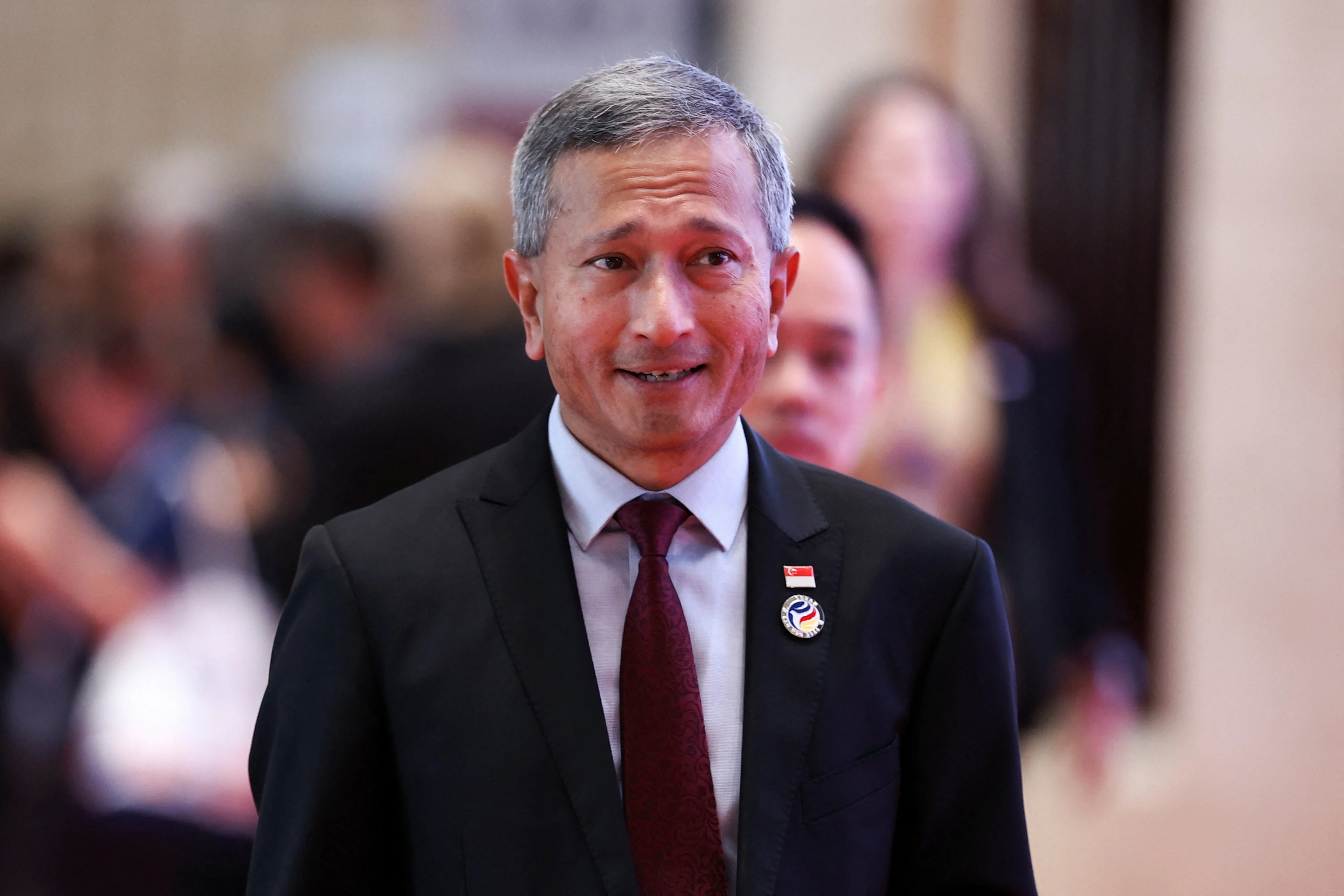By Jean Iau
Copyright scmp

Southeast Asian countries should not be judged harshly on their shifting positions amid the heightened US-China rivalry, Singapore’s top diplomat has said, while emphasising unique “vulnerabilities and opportunities” across the region.
Singapore Foreign Minister Vivian Balakrishnan told the FutureChina Global Forum on Friday to avoid binary thinking, stressing that the city state was open for business to all, with China as its biggest trading partner and the United States its largest foreign investor.
Balakrishnan called Singapore a “technocratic and technophilic system” pursuing the latest technology regardless of source. “We will do business honestly, and we will not play games, and we will live up to our word,” he said at the event organised by the Singapore non-profit Business China.
On whether other Asean countries followed the same belief system, Balakrishnan said: “Everyone, in their own way, is trying to remain open and to have a more balanced set of relationships, but each country will make a slightly different adjustment to their foreign policy.”
He added: “Don’t judge other countries too quickly. Everyone has their own vulnerabilities, their own threat assessment, their own opportunities, and they are making those necessary adjustments. They cannot behave like us, and we should not expect them to behave like us.”
Balakrishnan pointed out that after being used as an area for proxy wars 60 years ago, the Association of Southeast Asian Nations focused on economic integration and development, putting aside the vast diversity within the bloc in terms of political systems, languages and religions.
In the current climate, the key to economic development was technology, which meant it was crucial to raise the skills of people to take full advantage of technology and secure peace and prosperity in Southeast Asia for the next few decades, he said.
Balakrishnan noted that the three technological revolutions at present were in digital technologies, especially artificial intelligence, renewable energy and biotechnology. He said while the Americans had the lead in AI, China was ahead in renewable energy and in biotechnology, it was too close to call.
He expressed hope that those working in science and technology continued to compete to innovate, bring ideas to business and raise standards of living and productivity for everyone.
“But in order to do that, we must avoid [a] binary win-lose kind of thinking,” he said, noting that Singapore would – to the maximum extent possible – remain open, rational and disciplined.
Singapore Deputy Prime Minister Gan Kim Yong earlier on Friday also cautioned against power-based politics, noting that the US and China had, in their respective ways, turned towards unilateralism.
“The future must still be anchored in rules, but rules updated for the realities of our time,” he said, urging the global community to reform the World Trade Organization and update the rules of trade to reflect the realities of digitalisation, the green transition and new technologies.
He also pushed for more agreements involving smaller groups of like-minded countries, like the Comprehensive and Progressive Agreement for Trans-Pacific Partnership, the Regional Comprehensive Economic Partnership and the Future of Investment and Trade Partnership, which was launched on Tuesday with Singapore and 13 other countries, including Brunei, New Zealand and Switzerland.
During a panel on how political shifts would impact the region, while panellists agreed that Asean, with its rising middle class and population of almost 700 million people, had potential, Gita Wirjawan, founder and chairman of Ancora Group, pointed out that the bloc faced structural challenges.
The old world order will not return any time soon
Alfred Schipke, East Asian Institute director
“The structural reason as to why there is a widening economic divergence in Southeast Asia is largely and structurally because of the educational divergence,” said Wirjawan, noting that within the region, only Singapore and Vietnam’s education systems were above the global average score of the Programme for International Student Assessment (PISA).
“I do see trends which are presenting both challenges and opportunities, but I do believe that Southeast Asia has its work cut out in the next few decades on the back of this massive educational divergence,” he said.
Alfred Schipke, the director of the East Asian Institute, pointed out that there was a lot of incentive for countries to reduce trade barriers bilaterally, even without the US, in what he called a “spaghetti bowl of free trade agreements”.
“The old world order will not return any time soon. We’re increasingly living in blocs, but on the positive side, there are a lot of movements for further integration, and this part of the world has all it takes to be the driver, not only for this part of the world, but for other parts of the world,” Schipke said.



